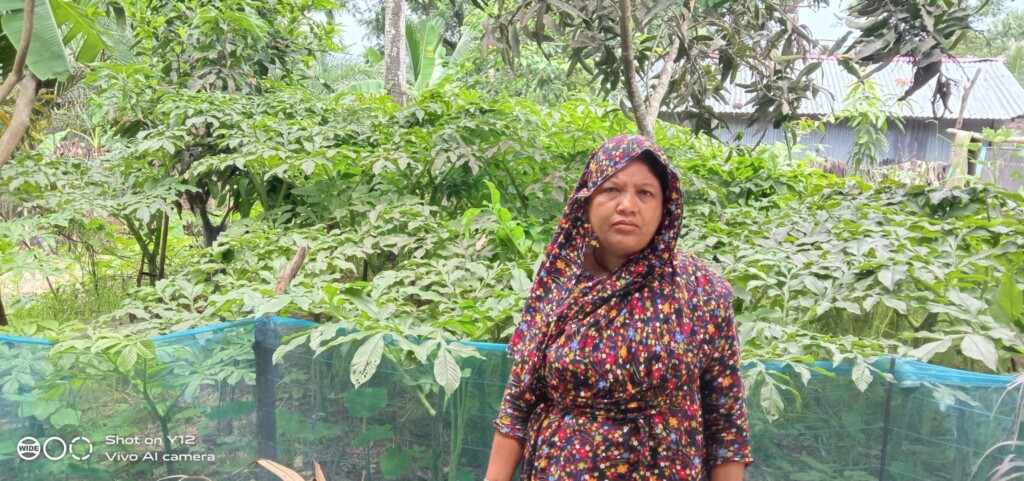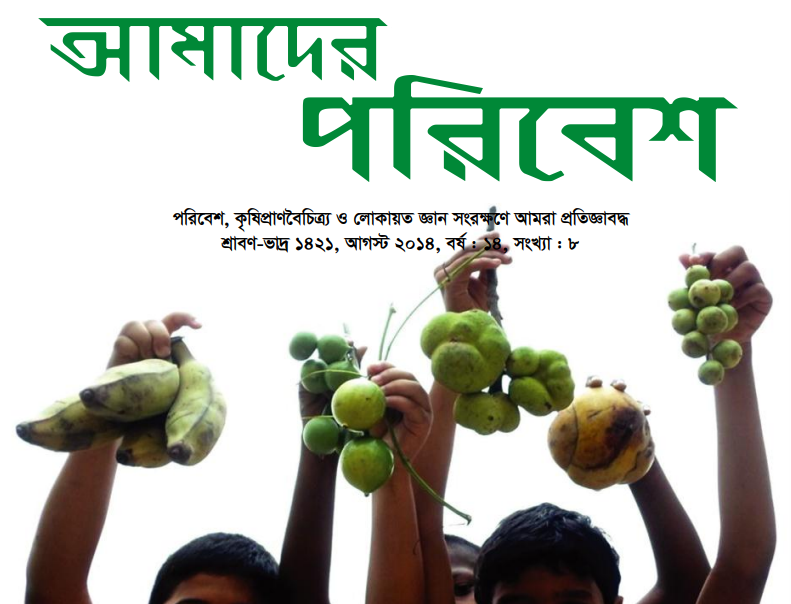Mofizur Rahman from Shyamnagar, Satkhira
In order to survive in a saline environment, farmers of the coastal region are constantly trying to ensure food security for their families. The people of Padmapukur Union in Satkhira have to constantly fight with salt water and salt soil. Due to being a river connected union, the number of shrimp farms is huge and the amount of agricultural land is very low in this union. However, in spite of this adversity Hamida Begum, a resident of Garhkumarpur village, is trying her best to meet the nutritional needs of her family. She has been cultivating vegetables all year round in her lands and homestead.

When asking regarding her Shotobari (Read: Nutrition bank) and how she has been benefiting from such an initiative and how others come to her for advices Hamida Begum said, `I grow seasonal vegetables all year round. I cultivate potato, spinach, ole, cucumber, pickle, manakchu, eggplant, red spinach, datashak, onion, garlic, tomato, anise, mango honey, dhundal, sweet pumpkin, kalmishak, gourd, bean and horseradish throughout the year. These vegetables are meeting the nutritional needs of my family.’ She went on saying, ‘I am running the household expenses with the money from the sale of vegetables. I also distribute cultivated vegetables with my neighbors. This exchange is contributing to the development of our relationship. In addition to vegetables, I have planted various types of fruit and wood trees.’ Hamida Beguma asserts, `I have planted mango, sabeda, jamrul, banana, blackberry, guava, palm, sweet flower, neem, khai, shimul, betel nut, walnut etc. I have also a pond where I farm local varieties of fishes such as Vhetki, Rui, Katla, Mrigel, Silver, Tengra, Puti, Tablet, Japanese Puti, Shrimp, Tilapia, Magur fish.’ Hamida Begum also rears livestock which also benefits her to some extent. People used to come to her for advices as well as to get seeds and other materials.
Hamida Begum adopts sustainable agriculture. She uses organic manure and vermin compost in her vegetable and crop land. She collects seeds from the matured vegetable and crops she cultivated and conserve the seeds for the next seasons including exchanging with others. Hamida Begum said, ‘I collect and conserve various seeds from cultivated vegetables. So I do not need to worry about seeds during cultivation. I used my own seeds and distribute them among others those who are in need of seeds. So far, I have distributed seeds of Dhundal, Rice Pumpkin, Eggplant, Punishak and Bean among the neighbors during the monsoon season.’ Her house has been selected as ‘Shotobari’ by BARCIK and since then various issues have been discussed in her house which made others interested to get involved in producing crops and vegetable in an environment friendly way.’
It is to mention that the ‘nutrition bank’ or Shotobari (hundred houses) which has created through nutrition based agriculture is playing a role in ensuring the welfare and well-being of farmers’ family. It also contributes in developing mutual relationship among the farmers and others.
Translated by Silvanus Lamin


